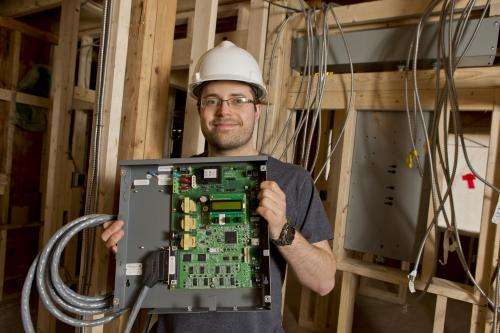Researchers say changing energy habits may have a simple solution

Clarkson University's Smart Housing Project is the first of its kind in the nation to take an interdisciplinary look at how technology can change behavior around the daily use of water and power.
What makes people use less energy? For many, it's the cost: economic, environmental or both. Costs are only made clear, though, in a monthly utility bill. And that's something millions of Americans never see.
These are people who live in various types of housing where power is part of the rent. This group includes more than half a million New Yorkers that live in college residence halls. Across the U.S., student housing accommodates 13 million people for about nine months a year.
"That's a lot of people who have access to a thermostat but never get a heating bill," says Clarkson University Assistant Professor of Political Science Stephen Bird. His work in energy policy includes in-depth research on the "split incentive" problem.
"Essentially," he says, "it's any situation where the benefits people receive aren't in line with the amount of money they pay. But in this case, the students are drawing large amounts of energy which, in turn, loads the power grid and consumes natural resources expensively and inefficiently."
The fix may be remarkably simple—and not too expensive, either.
"If we can show students how much energy they use," Bird says, "if they see the impact of turning up the heat in winter or spending 15 minutes in the shower instead of five, we expect their behavior will change, dramatically."
So, how can students see energy use? With a dashboard—a digital readout—showing the amount of electricity and water flowing into their living space. As Clarkson University's Woodstock Village student apartments went through extensive renovations last summer, faculty and students installed sensors and other data collecting elements.
"There's an enormous potential here to help people make more sustainable choices," says Clarkson Associate Professor of Civil & Environmental Engineering Kerop Janoyan, who is working with Bird on the project. "Because once you quantify energy usage, you start looking at renewable sources of energy."
Provided by Clarkson University

















